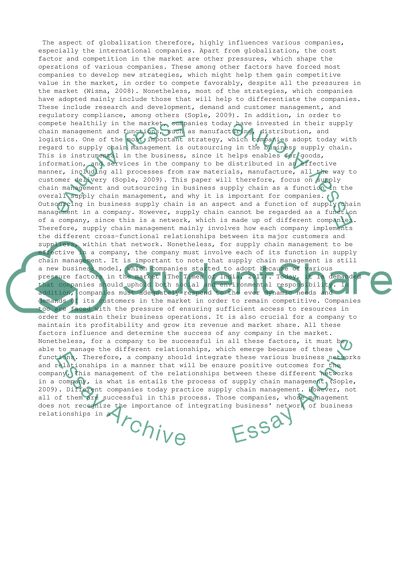Cite this document
(“Supply Chain Management and Outsourcing Essay Example | Topics and Well Written Essays - 2250 words”, n.d.)
Supply Chain Management and Outsourcing Essay Example | Topics and Well Written Essays - 2250 words. Retrieved from https://studentshare.org/business/1475244-week
Supply Chain Management and Outsourcing Essay Example | Topics and Well Written Essays - 2250 words. Retrieved from https://studentshare.org/business/1475244-week
(Supply Chain Management and Outsourcing Essay Example | Topics and Well Written Essays - 2250 Words)
Supply Chain Management and Outsourcing Essay Example | Topics and Well Written Essays - 2250 Words. https://studentshare.org/business/1475244-week.
Supply Chain Management and Outsourcing Essay Example | Topics and Well Written Essays - 2250 Words. https://studentshare.org/business/1475244-week.
“Supply Chain Management and Outsourcing Essay Example | Topics and Well Written Essays - 2250 Words”, n.d. https://studentshare.org/business/1475244-week.


